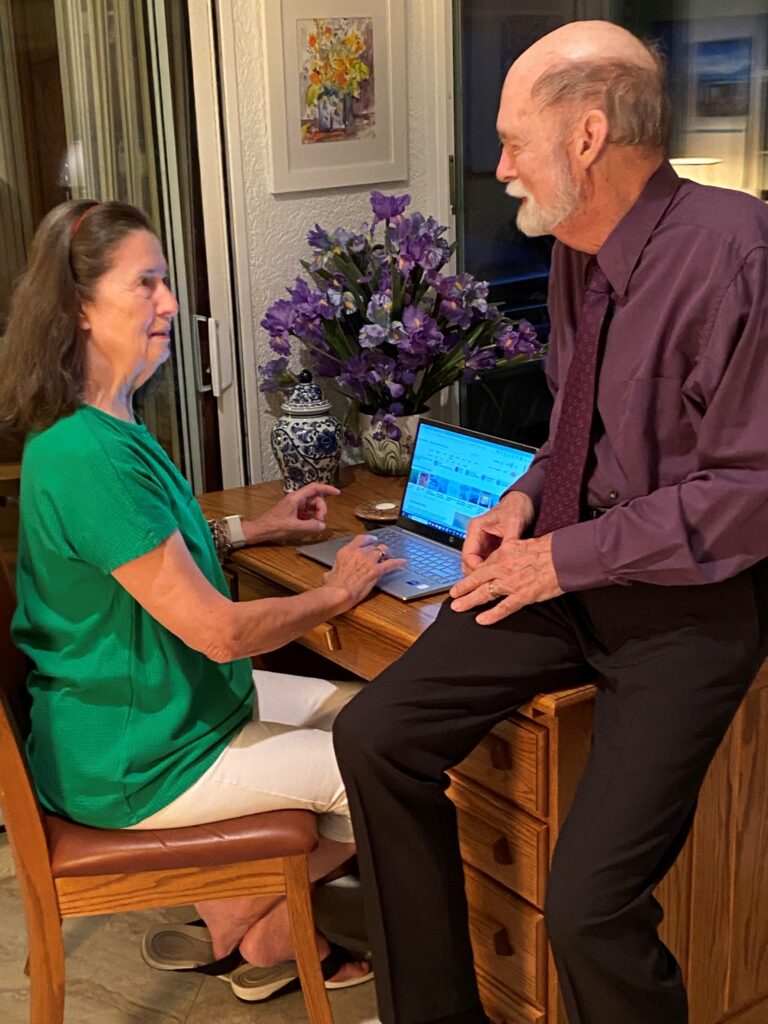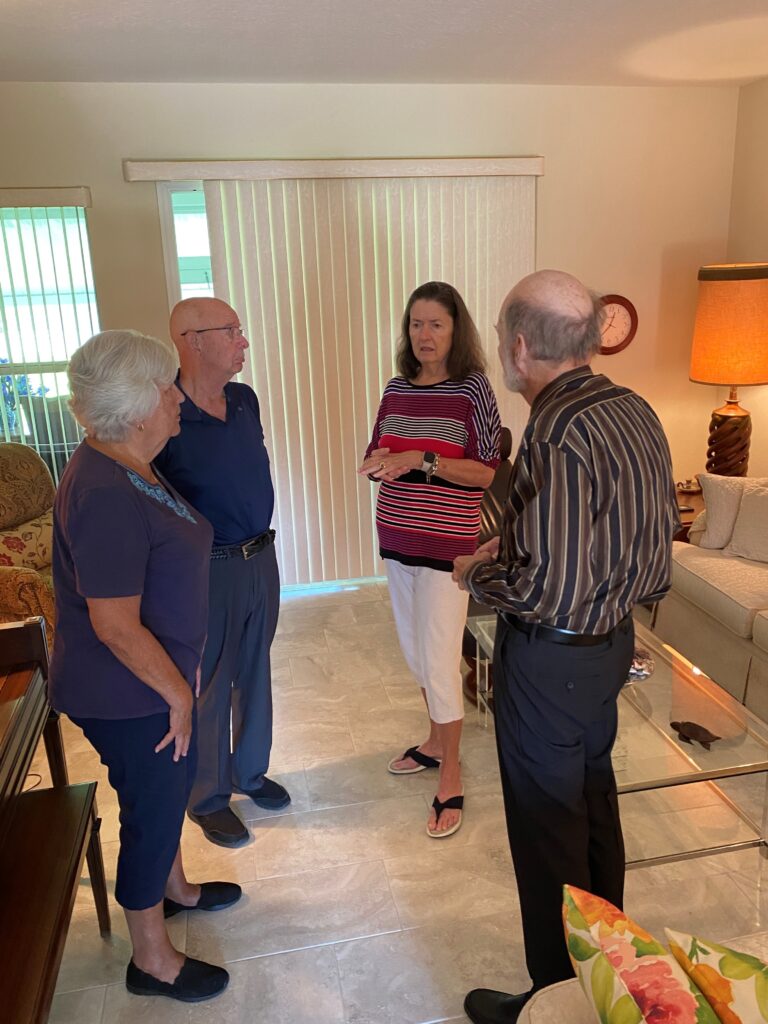The only candidate with a credible plan to reduce our political divide and enable us to work together better.
The only candidate determined to achieve a balanced budget.
The only candidate who will prioritize solving the country’s problems over winning culture war skirmishes.

Compassionate Cooperation
Because we are all equals as citizens, your voice should count just as much as any other citizen’s voice.
Even if all you hear are opinions and spin, there is still such a thing as “truth.”
Question everything others say, so you can get closer to the truth.
Make Congress gather taxes next year to pay for everything it spends this year. We should have a balanced budget every year and end all government borrowing (except for emergencies).
With two parties basically equal in power, neither one will ever “win,” so our only hope is useful compromise.
Vote for the most qualified candidate to be President, not the one with the most publicity.
For their own sakes and to contribute to the country, everyone should have a job of some sort.
Talk politics to understand how someone else sees and thinks (and why), not to change his/her mind.
Treat everyone with the same respect and courtesy.
Everyone needs a sense of value and a sense of security.
Most asylum decisions should be made at the border within a week of entry.
Campaign Priorities
My most important priorities are these:
- RESTORING EQUALITY AMONG CITIZENS
- RESTORING AMITY AND ACCEPTANCE AMONG CITIZENS
- MAKING COMPROMISE THE NORM FOR OUR DEMOCRACY
- BRINGING MORE TRUTH TO POLITICS
- DIMINISHING THE POWER OF THE TWO MAJOR POLITICAL PARTIES
- CHANGING OUR TAX SYSTEM AND ATTITUDES AND HAVING A BALANCED BUDGET
- MAKING ELECTIONS ABOUT WHO CAN DO THE JOB BEST
- JOBS FOR ALL AND WAGES FOR A DECENT LIFE
- ENCOURAGING CIVIL DISCOURSE ON POLITICAL ISSUES AMONG CITIZENS
- REVISING OUR IMMIGRATION POLICY
- ENCOURAGING BETTER EMOTIONAL HEALTH AMONG CITIZENS
Of course, I will attend as President to all sorts of other issues and needs, but I think that progress on these eleven topics would do wonders for our society! Imagine respecting and basically accepting all other citizens, even those with different political thoughts than yours (and them doing this in return toward you). This would make things so much more comfortable and make government much more productive.
Imagine Representatives and Senators dealing with their counterparts with the assumption that none of them is going to get his/her way exactly but that all of them together will find the best possible compromise for the time being. We would get so much more done.
Imagine knowing what your representatives in Congress are spending each year, paying for it yourselves (all of us together) the following year with our taxes, and electing somebody else if you think it is too much! We could reduce the national debt to zero over time and pay less in taxes because we wouldn’t be paying interest on all of Congress’s borrowing every year!
There’s lots that we can improve about our process–let’s get to it!
You can find details about these priorities by clicking on My Priorities (and details about a number of other significant topics by clicking on Topics at the top of the home page).
Also, see the campaign book–A Compassionate, Moderate Political Platform for 2024, available on Amazon, B&N, etc.
Restoring Equality Among Citizens
The bedrock principle needed to bring our country back to greater harmony and capacity to work together is the principle of equality. We are all equal as citizens. The needs and views of each citizen are just as important for the country as the needs and views of every other citizen and should carry just as much weight in the country’s decision-making. Every person has fundamental value just for being a person. No individual is any “better than” any other individual, and no person’s future should be determined solely by social status. Claims to be “better than” someone else are destructive to democracy. By my example and by promoting the principles of good government and decent treatment of others described herein, I will lead the effort to bring us back together. No other candidate has any idea of how to do this. I challenge them all to describe the kind of society that they wish to create and how they will bring us closer together. (You can find my vision for our country in my campaign book A Compassionate and Moderate Political Platform for 2024 and on the website ebbeforpresident.com.)
In addition, the primacy of citizen voices for politics has to be restored. The Congress is supposed to seek to understand and implement the will of the people, but they have gotten so focused on the power struggle between parties that we citizens never know what they actually think or how they are conducting our business. I will develop programs for citizen feedback to government, including annual referenda on such things as how much should be spent on healthcare.
We are all equals as citizens.
If you want to be taken seriously, you must take the rest of us seriously, too.
Every policy decision advantages some citizens and disadvantages others.
Government decisions should be made by considering the impact on all citizens.
Democracy is about hearing every citizen’s opinions.
Democracy isn’t a fight; it is a format for working together to solve problems we can’t take care of individually.
Your voice should count just as much as any other citizen’s voice.
Because we are all equal as citizens, we should treat each other with basic respect and courtesy at all times.
Think for yourself!
It is a mark of emotional immaturity to think that you can and should get your own way.
Trying to win and trying to beat others are the problems.
Give up trying to “win” politically, so we can work together.
Don’t Let The Market Tell You What You’re Worth!

Restoring Amity and Acceptance Among Citizens
To bring greater peace and harmony to our society, we must first acknowledge our belief in the fundamental equality of all citizens as described above. If we truly believe in this equality, it means that no citizen is any “better than” any other in their worth and value as people. You cannot be truly equal with someone if you feel either superior or inferior to that person. If you feel superior, then you will think you “deserve” more than that person, and if you feel inferior to that person, you will resent it until that inequality is redressed.
If you feel like an equal to someone, you will naturally treat that person with respect and courtesy, you will not see him/her as an enemy, and you will not seek to undermine his/her welfare. This practice would do much to improve our relations with each other.
In addition to treating each other at all times as basic equals and with respect and courtesy, to have greater peace and harmony we must care about each other, at least a little! In so many ways conditions and happenings in society that affect others also affect us, so in caring about others’ needs and feelings, we also address our own issues. It’s very difficult (though not impossible) to care about the needs and feeling of others who we perceive do not care about us.
When we care about others and treat others well, it induces them to care about us and treat us well. This reciprocal effect benefits everyone, so in caring about others, you will benefit yourself.
Caring includes having a positive attitude toward others and toward relating with others, feeling warmly toward them, seeing ourselves as basic equals, wanting good things for them, treating them well, and giving them basic acceptance. We want them to be happy and not to suffer unnecessarily.
If you care about someone, you will not seek to take advantage of him or her, and you will not seek to force him/her to give you things that he/she does not want to give.
Status hierarchies act to induce us to accept our social position, but they act against democracy, since they automatically make people unequal. To be truly equal with others, we give up our hope to be “better than” them and accept that we are just who we are (just as they are just who they are—no more, no less).
Our true value as human beings is in how we use the life we have and how we help others to live their lives better. Instead of using winning, income, achievements, etc., as proof that we are valuable and more valuable than some others, equality leads us to start viewing everyone, including ourselves, in terms of what is really important–how we manage our lives and what we give to others. The essential and most valuable qualities or achievements of each of us are (1) taking good care of ourselves and those dependent on us and (2) doing things that contribute to the welfare of the total group.
Giving someone basic acceptance is simply not rejecting or attacking that person—letting them be (unless they are harming others)
Given our split into basically two equal parties, neither party is ever going to vanquish the other and gain permanent power, so the only reasonable alternative for making things better is for them to join together in working to find the best solutions and compromises for our current problems.
Most human beings feel threatened by and therefore reject people who have different beliefs and views from their own, but this can be overcome by understanding those differences better and gaining more security for yourself in life in general. (See Encouraging Civil Discourse on Political Issues below.) Differences do not necessarily mean danger or require defending or distancing. You can learn to see the good and the bad about a person without condemning that person.
Besides getting to know our supposed enemies and treating everyone with respect, courtesy, and caring, the other key to doing what we can about our political divide is to reassess whether people with opinions different from our own are actually a threat. If they are no threat, then we disagree with them, but they are not enemies.
Do you truly give your “opponents” and “enemies” the right to their own opinions, or do you want them to “shut up” and just do things your way? Frankly, to do anything less than respect their right to their own opinion is to threaten our democracy. If you have to have it your way, then you don’t want a democracy, you want a dictatorship of some kind (on the basis of power or religion or ethnic group, etc.).
In order to care effectively for others and to be able to lessen their suffering, it is important that we use our empathy to understand their feelings and needs. (See my book Live Wisely, Deeply, and Compassionately or my article on empathy on the website www.livewiselydeeply.com under human functioning/coping.)
We each “deserve” all the good things in life that are available to all, including caring and love, and we each can treat others with positive warmth and good wishes that express the caring within us.
We can transcend our tribal instincts if we attend to our attitudes and how we view others.
All people who are disadvantaged or marginalized deserve our caring and action to reduce their suffering. I will lead an attitude change so that we see everyone as basic equals and equally deserving of respect, courtesy, and caring. I will treat everyone with respect and courtesy. I will try to bring caring for all into our political discussions, and I will ensure (as far as I can) that no government actions occur that inappropriately disadvantage any groups of citizens.
I will encourage attitudes of equality between men and women, and I will highlight the frequent use of violence against women by men so that we can establish a stronger norm against this.
I will propose that women who have been out of the work force for at least several (perhaps six?) years will be, by law, given compensatory work experience credit by people doing hiring. this credit would be available as well to men who do the primary childrearing.
I will seek ways to model and legitimize for men the new emotional and behavioral roles expected of them and will seek to develop and fund a network across the country of technical schools to make career preparation easier for men (and for the women who might favor those careers). I will also encourage apprenticeship approaches to hiring by businesses. I will explore the value it would have to delay the start of school for all boys one year, as has been proposed already, since boys develop somewhat behind girls at that age, and delaying all boys a year might decrease some of the problems of inattention and difficulty with self-control that many boys seem to manifest in the classroom.
I will support activities that enable children to learn about the big world (like living for a summer with a family in another part of the country, summer camps to acquaint children with the rest of the world, etc.) and that help children to have good self-esteem (especially a positive view of themselves and the ability to properly evaluate any criticism or rejection they encounter). I will also support high school curricula that give training regarding lifetime management of finances, understanding taxes, how to stay healthy, how to have a good marriage, how to raise healthy children, etc.), as well as making good parenting education available in every community. These courses will include recognition of cultural differences in regard to accomplishing these goals. I will seek for all our schools to have mandatory education in the principles of citizenship in a democracy.
Non-gender conforming citizens will be treated equally and just as well as any other citizen under my administration—with respect and courtesy and with just as much access to services as anyone else would have.
I invite you to join me and your fellow citizens in a campaign to bring us back to a sense of unity as a people and to ease the burdens of all of us through treating everyone with respect, courtesy, and caring.
Choose compassion and concern over power!
Power rules short-term; love rules long-term.
We get more done if we treat each other with respect and courtesy.
If we understand each other, we can see our similarities better.
We need leaders whose primary interest is what is good for the country, not
promoting any party’s or any individual’s agenda.
Treat everyone with the same respect and courtesy.


Making Compromise the Norm for Our Society
Democracy is ideally a system of gathering the equally valuable input from all citizens and then fashioning the best solutions possible at the moment for each and every problem. Democracy should not be about who can “win” and force everyone else to do as they direct; it must be about making the best compromises possible on every issue. The current emphasis on winning leads to the parties putting off even voting on needed proposals if they cannot win at that moment, which leads to ineffective and then erratic government as they overturn previous “wins” by the other side. I will work for effective and acceptable compromises for all of our problems. This will mean some citizens will have to give up their crusades to force their moral beliefs and attitudes on everyone else. (I believe now that there is more compromising going on in Congress than I realized some months ago, which is all to the good, but more can be done in this regard, and I will champion it, as well as highlight to the public the work of those in Congress who are doing their best to compromise.)
Our citizens are too focused on winning and too little focused on getting things done. In a diverse country, there will always be opposing views, each with some justification for those views (some more, some less), and this points us in the direction of seeking the most effective compromises on most issues. It is fine for everyone to state their beliefs and principles, but these positions vary in their pros and cons, and we must incorporate the best from each of them in our effective compromises. Ideological purity leads us toward winner-take-all government that lurches forward through time constantly changing direction and doubling back on itself as political parties gain and lose power. I will encourage respectful, well thought out arguments on issues, rather than mutual insults and purposeful exaggeration. Fighting makes a good draw on TV, but it is not the best way to make decisions or to educate voters. Fighting and trying to “win” over the other side leads simply to more anger and hatred. (Compromise is not dead in D.C. The Bipartisan Policy Center brings Congresspersons together to work on possible compromises out of the media spotlight and facilitates home visits between Republican and Democrat Congresspersons! The Friends Council on National Legislation (Quaker) also provides private work space and facilitation for efforts toward compromise.)
As an example of compromise, it seems to me that recent positions expressed on abortion (restricting abortion after two trimesters or fifteen weeks, with exceptions for rape, incest, and the life of the mother) represent an effective compromise. Neither side gets all it wants, but both sides get something significant. Going beyond this, to outlawing abortion totally (or removing all restrictions on abortion), moves away from this compromise to attempt an ideological “win” and will engender much more anger and conflict.
The process for effective and amicable compromise is not complicated.
- Understand what all sides (blocs and individuals) want. This may be something concrete but more often is related to something emotional. This reflects deep visions of our future country, which help to make sense of current requests/demands (viz., the current “culture wars”). Effective compromise is not just a trade-off negotiation but a quest to find ways to satisfy all sides and to have all sides feel heard and taken into account.
- Offer possible compromises that will benefit everyone to some extent. The common strategy in negotiating of asking for too much, expecting to then have “bargaining room” just slows the process greatly. It helps to establish trust to offer compromises that one would accept that very day, with no need for “bargaining down” (which is by definition a demeaning process). This “up-frontness” requires having everyone’s best interest at heart (and believing that everyone else has your best interests at heart) rather than trying to get as much for only one group as one can. This kind of cooperative compromise work is possible if you care, even a little, about the welfare of other citizens, as well as the welfare of your own group. If you don’t care about the welfare of other citizens, then you are a drag on the processes that make for a happy, cooperative society. You may say, “but that’s how people are—trying to get our own way; we’re all that way,” and I say “no, everyone isn’t that way, and it would be a happier and more pleasant country if people who did care about their fellow citizens and about fairness in government would step up to the plate, say so, and vote accordingly!
- Accept satisfactory compromises with a good heart, rather than planning already on ways to get more of your way in the future. Bring up even better compromises as economics or culture changes make them possible.
We can find a solution to any problem if both sides are willing to compromise sufficiently, so when Congress doesn’t find any solution, it means that one side (or both) have been unwilling to compromise sufficiently. From candidates we usually hear promises about “bipartisan” efforts, which get nothing done because of unwillingness to compromise. I will do my best to “help” Congress compromise sufficiently, and I will tell you about any resistance to compromise on the part of the parties that is preventing us from finding solutions.
If we understand each other, we can see our similarities better.
Every major piece of legislation contains many compromises.
We need compromises that do the most for the greatest number of citizens and harm the fewest citizens.
Everyone sees things differently, yet we must have laws that apply to everyone. Don’t think that democracy isn’t working just because a law isn’t fully the way you would like it to be.
Trying to win and trying to beat others are the problem!
Give up trying to “win” politically, so we can work together.
